Update time:2025-10-15Visits:2758

Fang Jingyuan, Academician of the Chinese Academy of Sciences, Professor of Gastroenterology, Director of Shanghai Institute of Digestive Disease, Vice President of Renji Hospital
Introduction
He is the leading figure in the Department of Gastroenterology at Renji Hospital. Under his leadership, the department has become China’s premier center for digestive diseases, setting numerous milestones in the field.
Building on the legacy of pioneers like Jiang Shaoji and Xiao Shudong, he has blazed trails in China’s gut microbiome and cancer research, opening new frontiers in the prevention of digestive tract tumors.
To this day, he remains committed to his weekly clinical duties, including outpatient clinics, ward rounds, and endoscopic procedures. Simultaneously, he leads multiple research teams exploring new frontiers in gastroenterology.
He believes life is about the relentless pursuit of one’s goals, ensuring that no moment is wasted. It is this philosophy, he feels, that makes a life vibrant and meaningful.
The Path to Medicine
Fang Jingyuan still remembers the days when his father was sent to work in the countryside during a political movement. At that time, his mother was in poor health, often appearing tired and weary.
“I stayed by her side. Seeing her exhausted, I felt a deep sense of guilt and knew I had to do something. That’s when I decided to become a doctor. I thought if I were a doctor, I could make her life more comfortable and happier.”
As a young man, Fang Jingyuan realized he needed to shoulder more responsibility, sharing the burdens of his family. After high school, his excellent academic performance earned him a place in medical school, marking the start of his journey into medicine.
At medical school, a place where ambition and intellect converged, Fang Jingyuan distinguished himself. He was often the first to arrive in the classroom at dawn, eager to absorb the wonders of medicine.
“After graduation, I started at Xuzhou First People’s Hospital. It was the launching pad for my career. There, I met seasoned senior physicians who were a major inspiration.”
In the 1980s, digestive endoscopy was just being introduced in Chinese hospitals. Under the guidance of his seniors, Fang observed numerous endoscopic procedures.
“I found this technology, which allows direct visualization inside the body, fascinating and practical. You could even perform treatments during the procedure.”
Fang felt that specializing in gastroenterology would make his medical career more dynamic and keep him at the forefront of technological innovation.
At Xuzhou First People’s Hospital, he not only gained extensive medical knowledge but also developed a meticulous approach to patient care. As China rapidly integrated with the global community in the 1990s, Fang’s resolve to pursue gastroenterology strengthened. To keep pace with the world, he decided to pursue postgraduate studies.
His hard work paid off. Fang was admitted to a joint master’s program, and soon after, became a doctoral student at Shanghai Second Medical University, studying under China’s gastroenterology giant, Academician Jiang Shaoji. This was the most important milestone of his life.
“In 1993, I had the honor of becoming Academician Jiang Shaoji’s doctoral student. He was the first Academician of the Chinese Academy of Engineering in our field. At the time, he had unique insights into preventing digestive tract tumors. He understood the need for early intervention and began collaborating with the Tufts University School of Medicine in the U.S. to explore gastric cancer prevention using substances like folic acid and beta-carotene.”
Working with Academician Jiang, Fang deeply felt his mentor’s love for medicine and his concern for patients. “His forward-thinking and international perspective set an example for me and laid the foundation for our department’s future.”
Tragically, on May 15, 1995, Academician Jiang Shaoji passed away, causing immense grief across China’s medical community. “In my eyes, he was a nearly perfect scholar,” Fang recalled. “He cultivated a generation of leaders in gastroenterology, and his selfless academic spirit continues to influence Renji Hospital to this day.”
With his doctoral studies incomplete, Fang continued his research under another giant at Renji Hospital, Professor Xiao Shudong.
“Professor Xiao was an elegant and calm scholar who excelled at international collaboration. As chairman of the Gastroenterology Branch of the Chinese Medical Association, he led China’s entry into the World Gastroenterology Organization. He was humble, a rigorous academic, and always maintained his composure.”
In 1996, Fang Jingyuan earned his doctorate. He considers the guidance of these two mentors the greatest honor of his life.
“In fact, Renji’s department was filled with top experts back then—Professors Zeng Minde, Qiu Dekai, and many others. They were all outstanding leaders in their fields.”
Fang notes that these experts were famously humble. “I remember one national ranking where our department placed sixth. Today, we have been number one for many consecutive years. Without the solid foundation laid by our predecessors, our success would be a house of cards.”
He is a firm believer in honoring history. “The younger generation must inherit this tradition. When new doctors join our hospital, the first thing I do is take them to pay respects at the statue of Academician Jiang Shaoji.”
“No great doctor can abandon the history of themselves or their hospital,” he insists. “History is the foundation of our discipline, containing the wisdom and experience of all who came before us.”

Inheriting Tradition, Climbing New Peaks
“From 1998 to 1999, I was a visiting scholar at the University of Connecticut School of Medicine. There, I witnessed the latest developments in our field and experienced the research atmosphere of the international medical community. It enhanced my understanding of digestive diseases and my confidence in developing new treatments. Subsequently, from 1999 to 2001, I joined a postdoctoral program at the National Institutes of Health and the National Cancer Institute (NIH/NCI), where I studied the relationship between digestive diseases and cancer. It was there I found my true direction.”
In 2001, Fang Jingyuan returned to China to advance the gastroenterology program at Renji Hospital. In 2004, he returned to the U.S. to research tumor signaling pathways at the University of Michigan, further solidifying his foundation in molecular biology.
Renji Hospital’s gastroenterology group was formally established in the 1960s. By 1984, it had founded China’s first dedicated research institute for digestive diseases. By 1989, it was recognized as the nation’s only key academic discipline in gastroenterology by the State Education Commission, and in 1994, the Ministry of Health established its only key laboratory in the field at Renji, cementing the hospital’s national leadership.
After the new millennium, the department continued to build on its reputation, being named a “Shanghai Clinical Medical Center of Gastroenterology” and a “Shanghai Municipal Government Key Discipline.”
“In 2005, when we applied for key discipline status, the original plan was for Professor Xiao Shudong to lead. However, he was over 70, so the department asked me to apply as the director. With the support of the hospital leadership and our entire team, we succeeded.”
For the young Fang Jingyuan, this was a recognition of his abilities, but it also meant greater responsibility.
Since 2005, he has led the department to a series of remarkable achievements. By 2008, it was designated the “Shanghai Clinical Quality Control Center of Gastroenterology.”
But 2010 was his most memorable year.
“I remember at the end of 2010, we had two major breakthroughs in a single day. That morning, our department was ranked first nationwide as a National Key Clinical Specialty by the Ministry of Health. That afternoon, we secured a National Key Laboratory project with 10 million yuan in funding. Shortly after, we became a ‘Shanghai Municipal Top Priority Clinical Medical Center (Class A)’—one of only 12 specialties in the city to receive the top rating.”
At Renji Hospital, Fang has set many precedents. He was the first at the hospital to receive the National Natural Science Foundation of China’s Distinguished Young Scholars Fund, the first to be named a Changjiang Scholar Distinguished Professor by the Ministry of Education, and the first to lead both a Ministry of Education Innovation Team and a National Natural Science Foundation Innovative Research Group.
“As the hospital’s most traditionally strong department, our gastroenterology team won 18 National Natural Science Foundation projects in a single year. I believe our achievements set an example for other departments.”
Combining Prevention and Treatment to “Fight” Tumors
“The focus on prevention set by my mentors, Academician Jiang and Professor Xiao, was truly visionary. Today, we understand much more about the mechanisms behind digestive tract tumors—from signaling pathways and DNA methylation to the gut microbiota. These are all key research directions.”
In terms of medication, Fang has done extensive work on “repurposing old drugs.”
During his doctoral studies, under the guidance of Academician Jiang and Professor Xiao, he researched using folic acid to prevent colon cancer. His dissertation on this topic was named one of China’s first National Outstanding Doctoral Dissertations. His subsequent research on vitamins preventing gastrointestinal tumors filled a critical gap, and his findings on folic acid preventing the initial onset of colorectal adenomas were published in Cancer Prevention Research. The journal’s editor-in-chief later highlighted the study as one of the year’s most important achievements.
“Through our research, we’ve found that many common, low-cost drugs—like folic acid, metformin, berberine, and metronidazole—have great potential in preventing digestive tract tumors.”
The gut microbiome refers to the vast community of microorganisms in the digestive tract, which interact closely with the host, impacting health, immunity, metabolism, and even behavior.
Fang Jingyuan’s team was among the first in China to systematically study the link between digestive tract tumors and the microbiome.
“The relationship between gut microbiota and digestive cancer has always been a major focus in international gastroenterology.”
In a landmark 2011 study, his team confirmed the microbiome’s critical role in the development of gastric and colorectal cancer. They found that higher levels of a specific bacterium, Fusobacterium nucleatum, were associated with poor prognosis in colorectal cancer patients. Published in Cell, the paper has been cited over 1,200 times and drew a commentary from a professor at MIT, who noted it was the first to link microbiota levels to chemotherapy ineffectiveness.
This research provided crucial insights, suggesting that adjusting the microbiome balance could improve tumor treatment efficacy.
Fang’s team also revealed that gut microbiota can mediate the host’s urea cycle to form an immune-microbial metabolic axis, regulating immune function and affecting colorectal cancer development (Cell Metabolism, 2023). They also discovered how atorvastatin can increase a beneficial gut bacterium that produces a substance inhibiting TH17 cells, thus preventing colorectal cancer (Nature Microbiology, 2023). In another study, they elucidated how Fusobacterium nucleatum secretes a metabolite that suppresses the body’s anti-tumor immune response (Cell Host & Microbe, 2023).
In gastric cancer research, Fang’s team was the first to prove that Streptococcus constellatus and Streptococcus anginosus in feces can predict the onset of gastric cancer. Published in Gastroenterology, this finding was patented and licensed to a company for developing screening products.
“We have published many papers, the result of years of hard work. Our department now has dozens of research teams focusing on different directions, and I believe there will be many more exciting discoveries to come.”
Fang attributes the team’s success to their dedicated research ethos, guided by the principle of “bold hypotheses and meticulous verification.” This approach, marked by rigor and patience, has consistently yielded fruitful results.

A Beacon of Hope for Patients with Rare Diseases
Despite his demanding research schedule, Fang Jingyuan remains committed to his weekly outpatient clinic.
He dedicates five half-days each week to clinical work. His outpatient clinic is held on Tuesdays and Wednesdays from 7:30 AM to 12:30 PM. On Thursdays, he leads ward rounds and personally performs select gastrointestinal endoscopic procedures.
Fang believes that clinical practice is the bedrock of medicine. For him, research and patient care are not separate pursuits but are deeply intertwined, as his work in the lab is ultimately meant to benefit those in the clinic.
When speaking of challenging cases he has encountered, Fang recalls them with clarity.
“I remember a patient from Zhejiang who had long suffered from heartburn, stomach pain, and acid reflux. During a gastroscopy, I found some unusual lesions and conducted a biopsy. Pathological analysis revealed collagenous gastritis, an extremely rare disease. We initiated a course of hormone therapy, and fortunately, it was highly effective, relieving his symptoms. I understood the treatment was challenging for him as well, and I hoped he would feel we were in this fight together.”
“Another patient with familial intestinal polyps came to us. My initial suspicion was Cronkhite-Canada syndrome, another very rare condition. A series of specialized blood tests confirmed the diagnosis, and we formulated an effective treatment plan. I assured the patient he wasn’t alone, and that our team would be with him every step of the way.”
Facing these complex cases, Fang feels the immense pressure, at times even a sense of helplessness. It’s a reminder that there are always deeper layers to uncover in research. He believes that involving more physicians and patients in studies is crucial to sparing others from similar suffering.
Talent: The Lifeblood of the Department’s Future
“Our department is full of talented young doctors, each with unique strengths. I believe in tailoring my mentorship to their aptitudes. Some excel in hands-on endoscopic techniques, others are well-rounded, balancing clinical work with research, and still others are passionate about basic science. With careful cultivation, each of them can become a leader in their own right.”
Fang also recognizes that young doctors face many pressures. He stresses the importance of both communication and reflection. He encourages them to think proactively, seek opportunities for external collaboration, and also find the focus for deep, uninterrupted research. This balance, he believes, is key to their professional growth and will drive future innovation in medicine.
Fang is optimistic about the future of the discipline. He believes that building a strong talent pipeline is essential for a department’s development; without it, progress and major breakthroughs are nearly impossible. He hopes every young doctor finds their niche and contributes to the department’s legacy. He encourages them to keep pace with the times, to be bold in their work, and to actively create new opportunities for breakthroughs.
Editor: Chen Qing @ ShanghaiDoctor.cn
If you'd like to contact Doctor Fang, please be free to let us know at chenqing@ShanghaiDoctor.cn.
Note: Chinese Sources from “The Path of Benevolent Medicine” which was published in 2024. It records 90 important medical figures in the history of Renji Hospital. Yewen Renyi (ShanghaiDoctor.cn) team was one of the major writers of the book and is authorized by Renji hospital to create English version on the website of ShanghaiDoctor.cn
Hospital: Renji Hospital, Shanghai Jiao Tong University School of Medicine
Dr. Zou Shien | A Physician’s Mission in Gynecological World
Dr. Bao Shihua | Where Dreams Begin from Reproductive Immunology
Dr. Yang Zhigang | The Art of the Healer: Between the Brush and the Brain
Dr. Cai Junfeng | Guarding Bone and Joint Health, Improving Quality of Life
Dr. Xu Xiaosheng|The Gentle Resilience of a Male Gynecologist
Dr. Shi Hongyu | A Cardiologist with Precision and Compassion
Dr. Zhang Guiyun|The Inspiring Path of a Lifesaving Physician
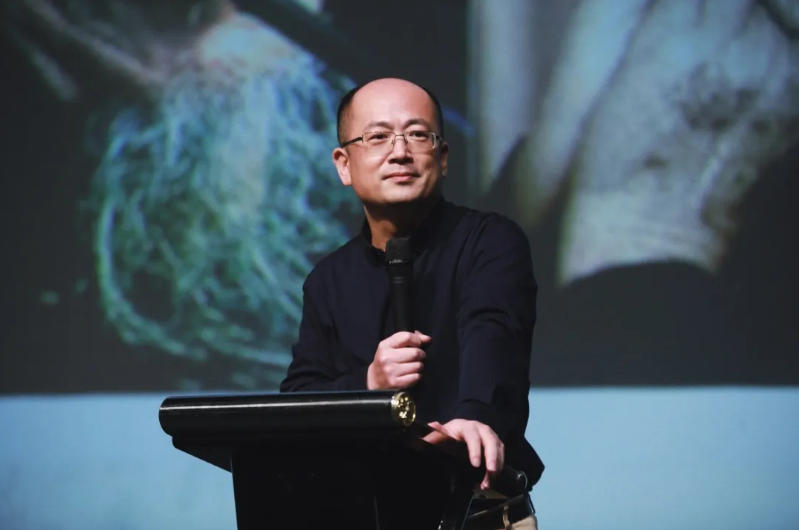
Dr. Zou Shien | A Physician’s Mission in Gynecological World
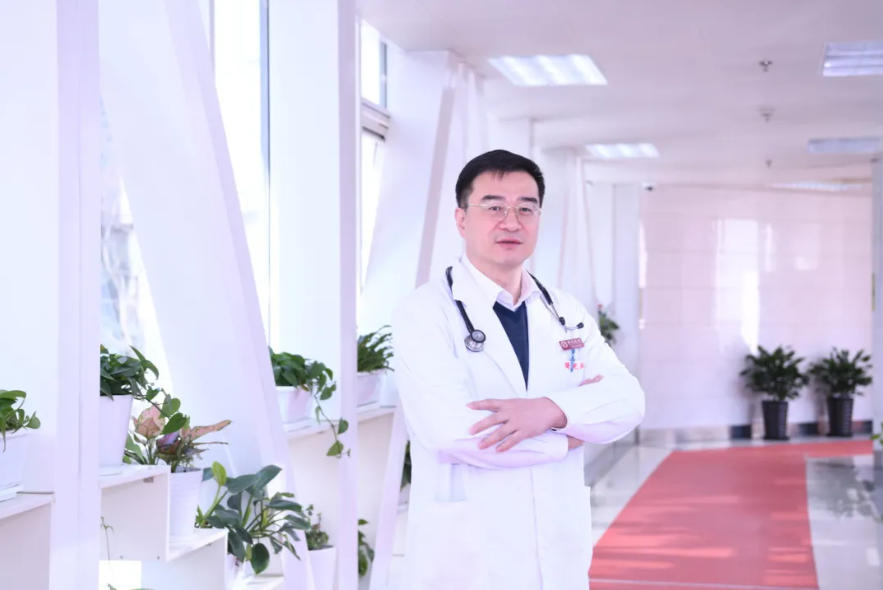
Dr. Cui Song | Healing the Heart, in Every Sense
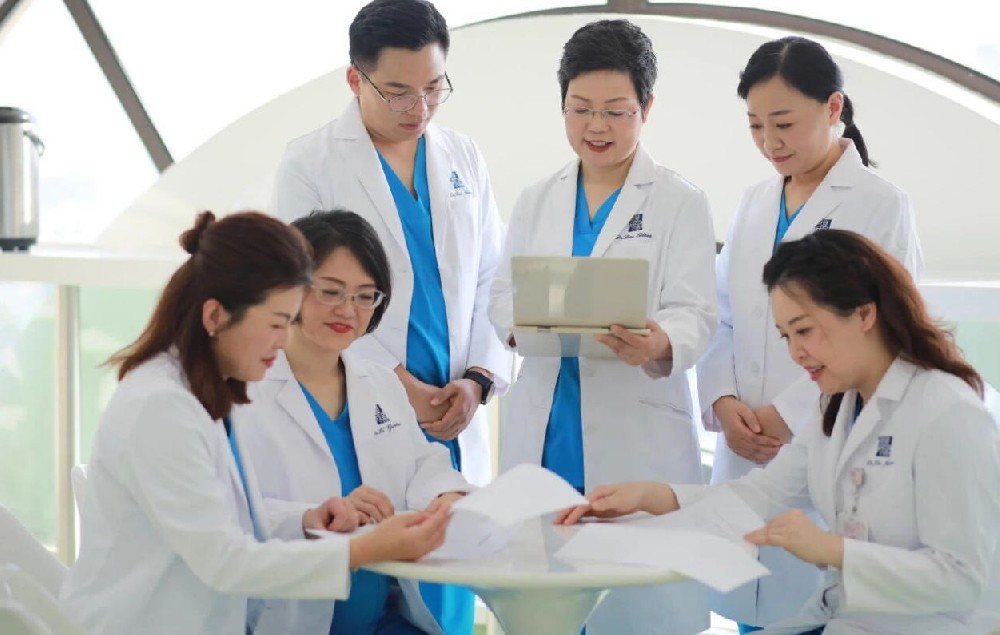
Dr. Bao Shihua | Where Dreams Begin from Reproductive Immunology
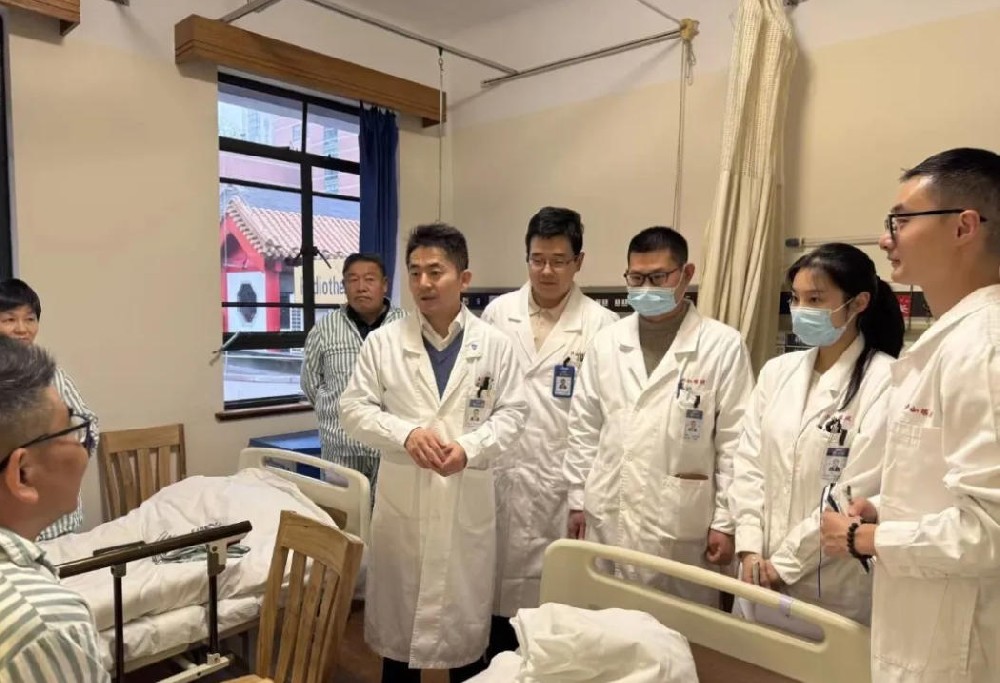
Dr. Yang Zhigang | The Art of the Healer: Between the Brush and the Brain
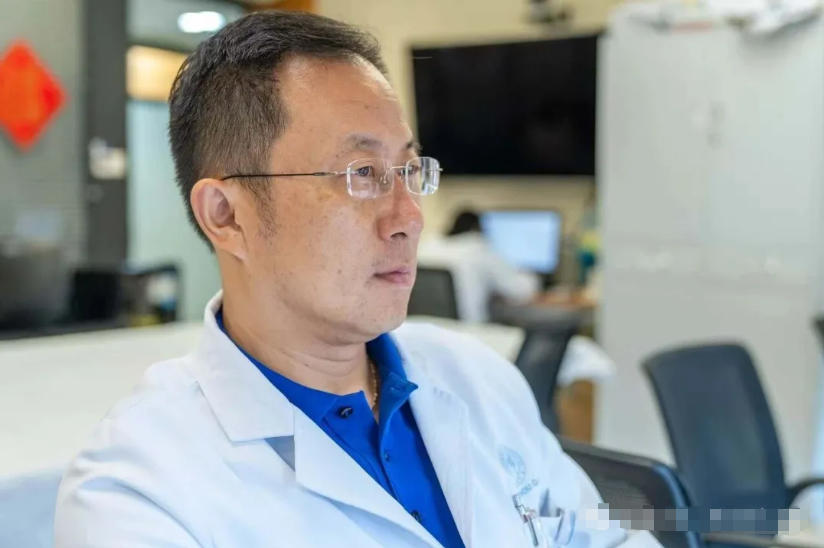
Dr. Zhou Qianjun | Sculpting Life in the Chest
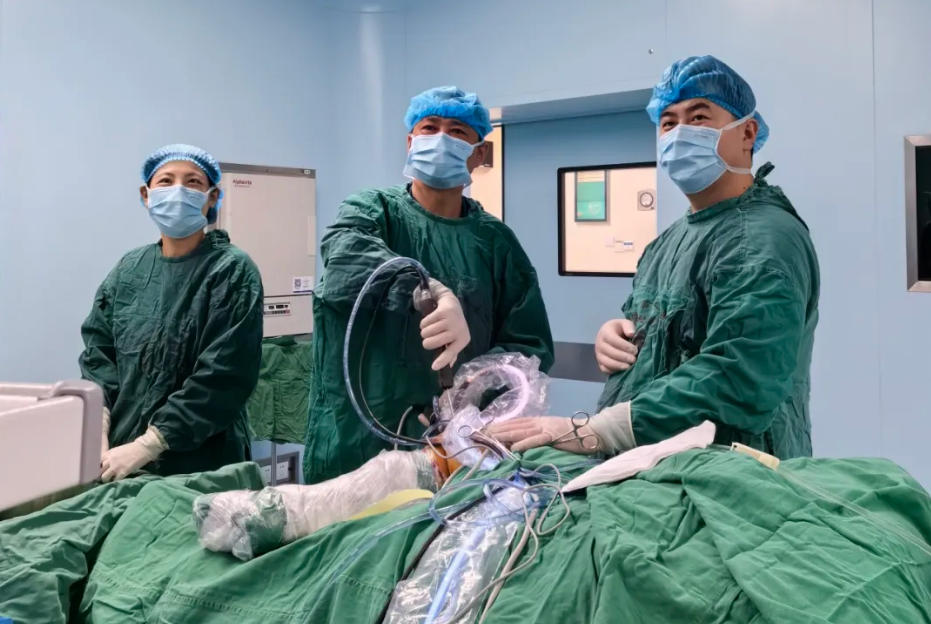
Dr. Cai Junfeng | Guarding Bone and Joint Health, Improving Quality of Life
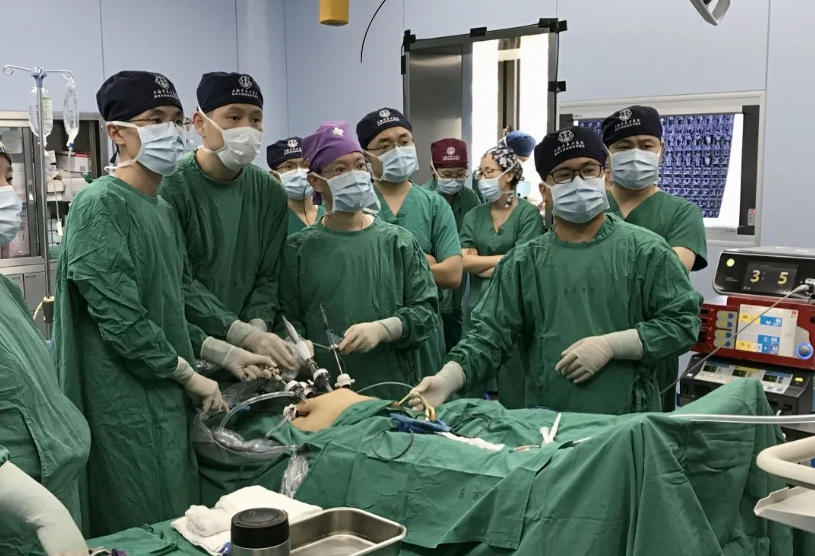
Dr. Cui Xingang | The Medical Dream of a Shanghai Urologist

Dr. Xu Xiaosheng|The Gentle Resilience of a Male Gynecologist

Dr. Shi Hongyu | A Cardiologist with Precision and Compassion

Dr. Zhang Guiyun|The Inspiring Path of a Lifesaving Physician